Chinese New Year Traditions & Activities
Table of Contents
- 1. Little New Year Festival (the Festival of the Kitchen God)
- 2. Worship Gods and Ancestors
- 3. Post Spring Festival Couplets
- 4. Family Reunion Dinner on Lunar New Year’s Eve
- 5. New Year Money (Red Envelope Money)
- 6. Stay up Late on Lunar New Year’s Eve
- 7. New Year Greetings/Visiting
- 8. Lion/Dragon Dance
- 9. Shopping at Temple Fairs
- 10. Eating Lantern Festival Dumplings (Yuanxiao or Tangyuan)
Lunar New Year is the first and top one of the four most important Chinese traditional festivals (the other three are Dragon Boat Festival, Qingming Festival and Mid-autumn Festival). Though it was only until the year of 1914 that Spring Festival became its alternative name, Chinese people have celebrate the New Year in different way for thousands of years. Chinese New Year Traditions might be one of the first thing children learn and then pass on to next generation.
Officially, Chinese New Year holiday is the first three days in lunar calendar, but in folks, people usually starts the preparation around one week before the festival and end the celebration till the 15th day of the first month of lunar year, hence totally 15 days of Lunar New Year activities. During around one month period, there are all kinds of Chinese New Year activities that Chinese family follows in a traditional way. Here we will introduce Top 10 main Chinese New Year Traditions.
Little New Year Festival (the Festival of the Kitchen God)
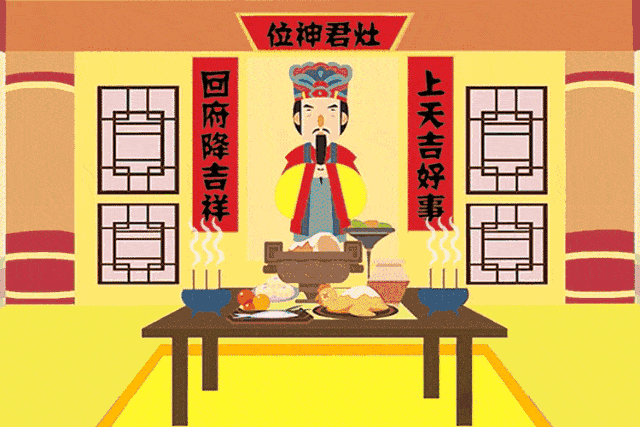
Another important thing on Little New Year is offering sacrifices to the Kitchen God. It is said that the Kitchen God goes to the heaven to do annual report of the family, so most of the offerings are sweets to encourage him to say good things only about the family. On the fourth day of lunar new year, the Kitchen God will get back to the family.
Worship Gods and Ancestors
Kitchen God is one of the gods Chinese people worship in Spring Festival. People also worship other gods like the Gods of Door and the God of Fortune. Door Gods paintings are usually posted on the door to keep the family safe. The fifth day of the New Year is the birthday of the God of Fortune, people usually offering sacrifice to him one day in advance to welcome his arriving.Worshiping ancestors is one of the most important activities of Chinese family of Han people. There are generally three traditional ways to worship ancestors – worship at home, worship at ancestors’ tomb (similar to but simpler than Qingming Festival), and worship in the temple of the ancestors.
Post Spring Festival Couplets
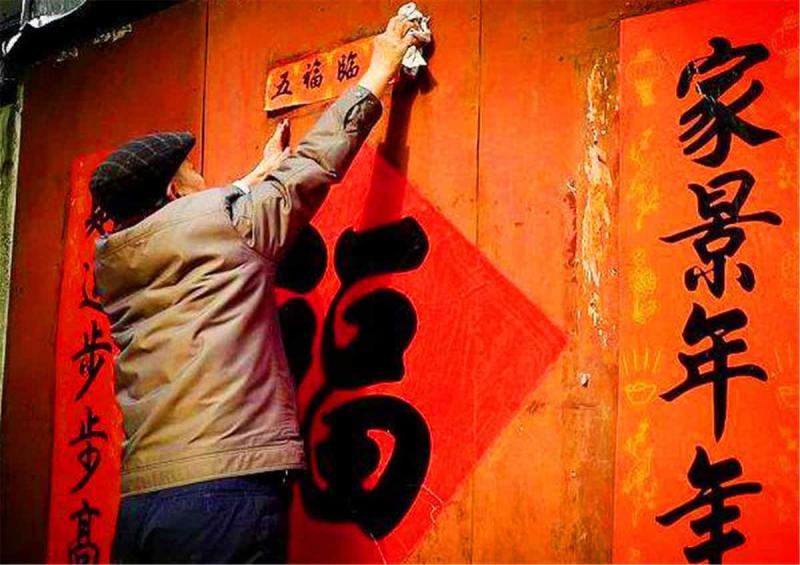 Posting spring couplets is a unique Chinese traditional folk customs. A set of couplet includes a pair of poetic lines written vertically in black or golden ink on red paper for both sides of the doorway, and a third scroll is usually posted on door head. The content of Spring Couplets usually shows people’s aspirations: good health, more money, happy family, bumper crop.
Posting spring couplets is a unique Chinese traditional folk customs. A set of couplet includes a pair of poetic lines written vertically in black or golden ink on red paper for both sides of the doorway, and a third scroll is usually posted on door head. The content of Spring Couplets usually shows people’s aspirations: good health, more money, happy family, bumper crop.Besides spring couplet, many people also paste up the character of Fu (福), window grilles, door gods and New Year pictures. An interesting detail is to pasting up an upside down of the character of Fu, which means “fortune arriving”.
>> Also read Top Ten Legends and Stories about Chinese New Year to know more why Chinese people post couplets
Family Reunion Dinner on Lunar New Year’s Eve
Besides the dinner on Autumn Festival, the dinner on Lunar New Year’s Eve is the most valued dinner for Chinese people. People will try their best to return home before dinner time, no matter how far they are from home.Chinese New Year Foods on the table for this reunion dinner are always following some customs, though there is difference from north to south, from family to family. Most of the dishes have good implied meaning. For example, fish means having a surplus year after year, and lettuce means more fortune next year. Usually the family won’t eat all foods on the table. To left some means the family has more than sufficient foods and fortune every year.
Jiaozi or dumpling is a must in north China area, while Niangao or New Year Cake made of glutinous rice flour cannot be missed in south China.
>> Also read Top 10 Chinese Spring Festival Lucky Foods, and Top 10 Meat Dishes for Chinese New year
New Year Money (Red Envelope Money)
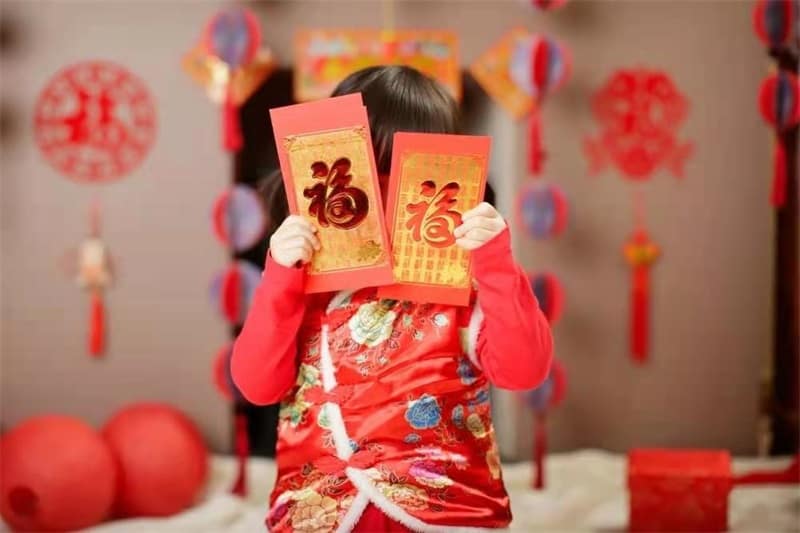
Stay up Late on Lunar New Year’s Eve
After the reunion dinner, all family members will stay up late till the morning of the New Year arrives, some even till the sunrise of the New Year. I In Chinese, this is called Shou Sui (守岁). House should be lighted up the whole night. This New Year tradition is said to bring longevity to elder people in the family.Another ancient Chinese myth is that a devil named “Nian” comes on New Year Eve. To prevent the devil’s destroy and protect family, people stay awake the whole night. And at mid-night, people fire crackers to drive the devil away.
New Year Greetings/Visiting
As the most important festival in the year, Spring Festival is the best time for family and friends to meet and visit each other. On New Year’s Eve, all family members meet for dinner and in the next days, they will follow the tradition to visit. The first day is for son’s family getting back to parents’ home and the second day for daughter’s family returning to parents. On and after the third day, people will visit friends and take all kinds of activities to celebrate the New Year.The most common Chinese New Year greetings is 恭喜发财, pronounced “Gong Hei Fat Choy” in Cantonese or “Gong Xi Fa Cai” in Mandarin, meaning wishing you great happiness and prosperity. Some other greetings are:
新年快乐 Mandarin: xīn nián kuài lè – Happy Chinese New Year
新年好 Mandarin: xīn nián hǎo – Happy Chinese New Year
生意兴隆 Mandarin: sheng yì xīng lóng – Prosperous Business
步步高升 Mandarin: bù bù gāo shēng – Get Promotion Continuously
财源Mandarin: cái yuán gǔang jìn – May a River of Gold flow into Your Pocket
大吉大利 Mandarin: dà jí dà lì – Good Luck & Big Profits
心想事成 Mandarin: xīn xiǎng shì chéng - May All Your Wishes Come True
身体健康,万事如意 Mandarin: shēn tǐ jiàn kāng, wàn shì rú yì – May You Good Health & Get Everything You Wish For
Lion/Dragon Dance
Lunar New Year is not only celebrated in family and between friends, it is also a festival people meet together to enjoy happy time. Lion Dance and Dragon Dance are the most typical Chinese traditional dances at mass gathering.
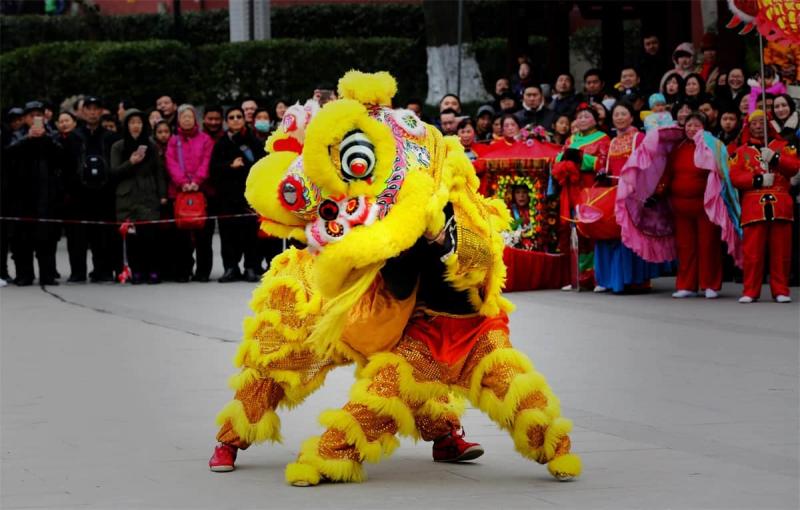 The Chinese lion dance is normally operated by two dancers, one of whom manipulates the head while the other forms the rear end of the lion. The team usually includes two to four lions, a dancer holding a decorated ball to guide lions, and a couple of drummers to play drum beats.
The Chinese lion dance is normally operated by two dancers, one of whom manipulates the head while the other forms the rear end of the lion. The team usually includes two to four lions, a dancer holding a decorated ball to guide lions, and a couple of drummers to play drum beats. Shopping at Temple Fairs
Miaohui (庙会) or Temple Fairs, is Chinese religious gatherings held by folk temples for the worship of the Chinese gods and immortals. Spring Festival is one of the times that large-scale temple fair held. In the ancient time, the dates of temple fair were various but most would be held on the first day of the lunar New Year. There are different activities at temple fair besides rituals celebrated in the temple, like opera performance, blessing of offerings brought to the temple by families, and various economic activities. Various Chinese foods and snacks can be found here, which is one of the most attractive parts for people, especially for family with child.Where to visit Temple Fair in Chinese Lunar New Year:
Beijing Longtanhu Miaohui 1st – 5th day of Lunar New Year
Address: Longtan Park, 8 Longtan Rd., Dongcheng District, Beijing
Beijing Ditan Miaohui 1st – 7th day of Lunar New Year
Address: Ditan Park, Andingmen Wai Street, Dongcheng District, Beijing
Beijing Ditan Miaohui 1st – 15th day of Lunar New Year
Address: Between Hufang Bridge and Hepingmen, Xicheng District, Beijing
Guangzhou Guangfu Miaohui 15th – 21st day of Lunar New Year
Address: Renmin Stadium, 18 Jiaochangxi Rd., Yuexiu District, Guangzhou
Luoyang Guanlin Miaohui 1st – 15th day of Lunar New Year
Address: 2 Guanlin Nanjie, Luolong District, Luoyang
Junxian Junxian Miaohui 1st – 32nd day of Lunar New Year
Address: Junxian, Hebi, Henan
Eating Lantern Festival Dumplings (Yuanxiao or Tangyuan)
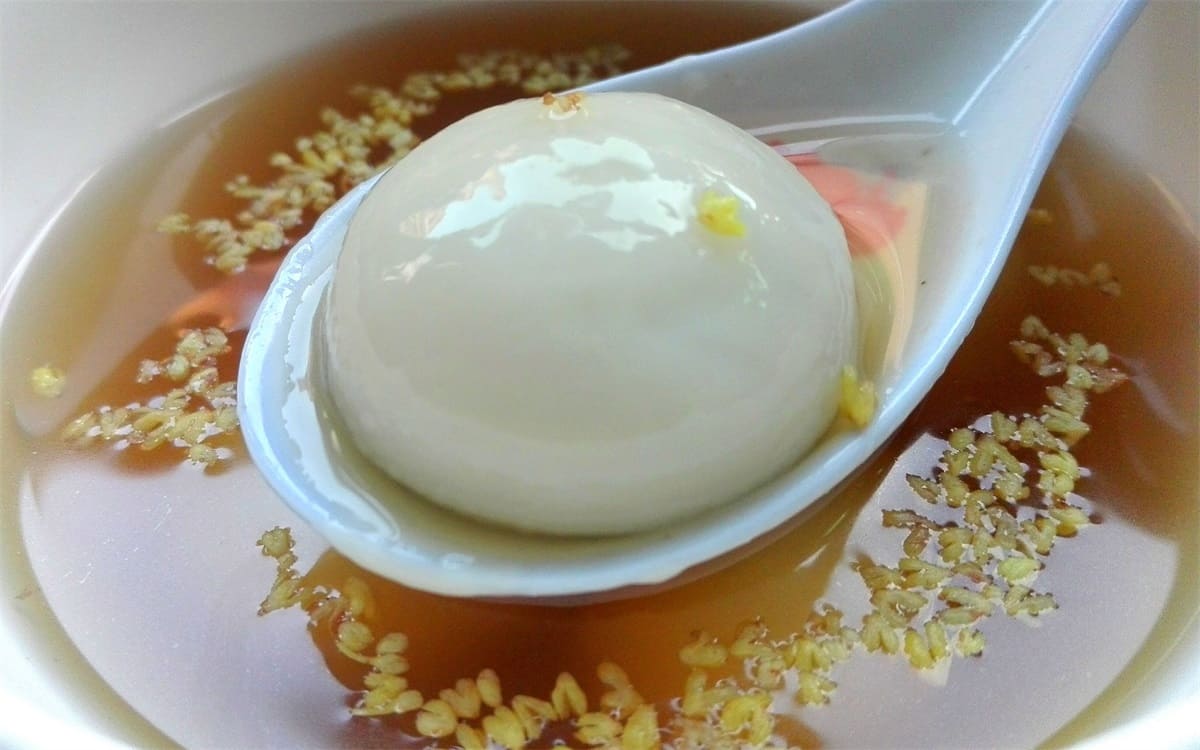
★ Recommended Chinese New Year Tour: 14-day Lunar New Year tour to Guizhou
★ Keep Reading on: Chinese New Year 2026: the Year of the Horse